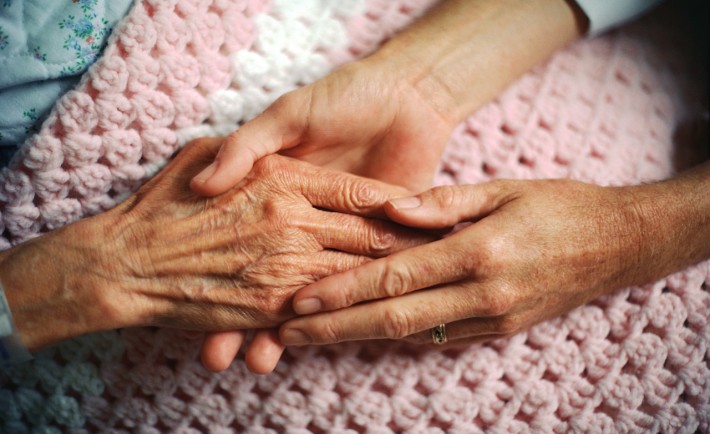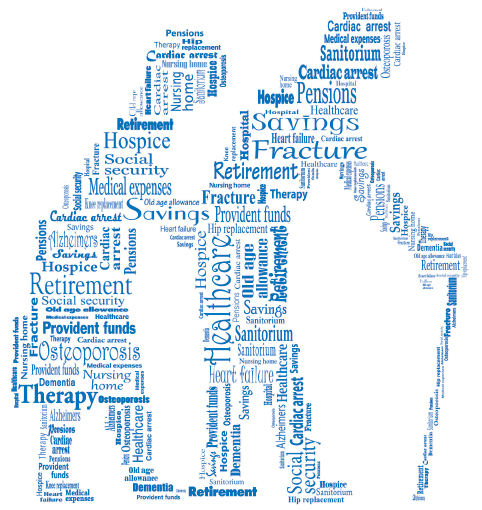
In the next fifteen years, 20% of the population in Singapore will be aged 65 and above. That figure is astonishing when you put this into perspective: there will only be 2 citizens in the working age band (aged 20-64) for each elderly citizen.
Singapore is not too far away from Japan as one of the fastest ageing population in Asia. With low fertility rate and later marriages, Singapore faces the challenge of a declining working population and stagnant economy.
With the increase in the number of elderly to 900,000 in 2030, healthcare and long-term costs are expected to rise alongside.
The concern of whether our 3M (Medishield, Medisave and Medifund) healthcare system is adequate to address the impact of a silver tsunami should be reviewed.
Besides the 3M approach to healthcare, what about the costs of long-term care (LTC) after being discharged from hospital? LTC refers to those with chronic medical conditions that has rendered them severely disabled to the extent of not being able to perform 3 out of the 6 activities of daily living which include washing, dressing, toileting, transferring, feeding and mobility.
The Eldershield scheme is designed to provide financial protection for long term care which seeks to provide a cash payout of $300 or $400 per month for a period of 5 to 6 years.
The question is if that amount is sufficient? Let’s take a look.
Inpatient care:
Community Hospital
You may be discharged from the hospital but that doesn’t mean you have fully recovered. You will need additional inpatient care such as therapy and rehabilitation, nursing care and the need of caregiver to provide help with daily living. The estimated cost is around $8,000 – $9,000 a month. There are government subsidies between $1,800 to $7,000 a month which you can apply for.
Nursing Home
These are for patients who cannot take care of themselves in their own home and need significant assistance. It costs around $1,200 – $3,500 a month. You can tap into government subsidies and Medifund for selected homes only.
Respite
Those that require temporary help can apply for respite care costing around $100-$150 a day.
Inpatient hospice care
Patients who suffered from serious and progressive diseases may need extra attention from a highly trained medical team.
It costs around $7,000 a month payable via Medisave.
Day centres:
Day rehabilitation centre
Suitable for patients who need therapy to regain the ability to perform daily tasks. Estimated cost: $700-$1,000
Dementia day care centre
Estimated cost: $700-$850
Hospice day care centre
Patient with cancer and life limiting disease. Estimated cost $700-$850
Care services at home:
Home medical service:
For those with mobility issues, home medical service is an option and cost around $130-$200 per visit
Home nursing:
Suitable for bedridden patients. Estimated cost: $80 per visit
Home therapy:
Estimated cost: $100-$150 per visit
Home help:
Patient who live alone and can’t leave their home will need some assistance which cost around $100-$150 per visit
Hospice medical/nursing home care:
Suitable for cancer patients. Estimated cost: $150-$220 per visit
Cost of informal family care
In a study by NUS, 80% of informal care for the elderly was provided by family member. That is to say, elderly who can’t afford to look after themselves financially will need assistance from their loved ones. These duties usually have a negative impact on the caregiver with majority of them having to make work accommodations, take leave of absence or to turn down a promotion.
It also changes the family dynamic of the caregiver as they have less time for their own family which can strain the relationship between spouse and children.
Ways to pay for it
Fortunately our government values our Pioneer Generation and has various schemes in place to help shoulder the burden of long term care cost. Here are some options:
Medisave: Medisave can be used to pay for the expenses at approved community hospitals, hospices, day rehabilitation centre.
Medifund Silver: Forms a safety net and to be used as last resort for elderly who can’t afford basic healthcare. It has been extended to include non-residential intermediate and long term care (ILTC) services.
Eldershield: Cash payout of $300-$400 a month to help defray living costs
Personal Savings: You may have to tap into personal savings should your long term care cost exceed the total benefits you can claim
Foreign Domestic Worker (FDW) Grant & Levy: A monthly grant of $120 to support families who hire a foreign domestic worker
Senior Mobility and Enabling Fund (SMF): Subsidies for assistive devices, specialised transport and consumables
Enhancement for Active Seniors (EASE): Home modifications to make it more conducive and safe for them
Pioneer Generation Disability Assistance Scheme: PioneerDAS provides $1,200 a year to help pioneer with their care need
Interim Disability Assistance Program for the Elderly (IDAPE): Provide $150 or $250 a month for a maximum of 72 months for those who are not eligible for Eldershield due to age or pre-existing condition
Subsidy for intermediate & long-term care (ILTC): Eligible patients can claim for subsidies through mean-testing and depends on the per capita monthly household income





